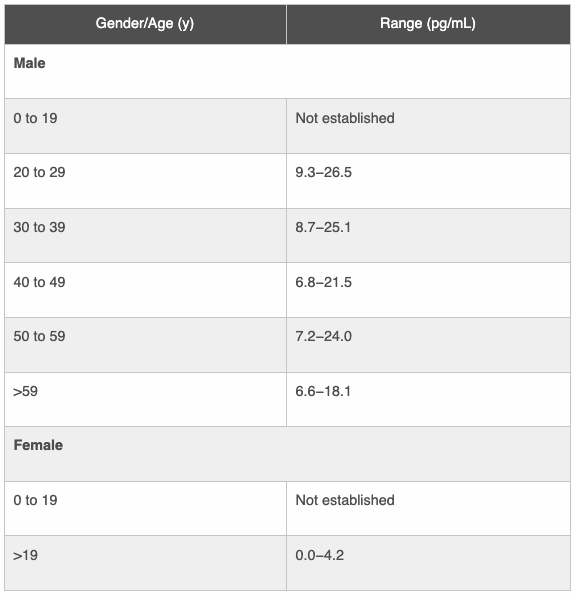Ever wondered what Free Testosterone (Free T) is? It’s the hormone linked to muscles, sex drive, and that deep voice (thanks, action movies!). But there’s more to testosterone than meets the eye. Today, we’re talking about free testosterone, the active member of your hormonal team that keeps things running smoothly.
Think of testosterone as a sports team: Most players (around 65%) are chilling on the bench, attached to carrier proteins. These are the “bound” guys, not ready to play yet. The rest, the free testosterone, are the starters on the field, ready to take action!
Free Testosterone: Your Body’s MVP
Free testosterone is what gets down to business with your cells, affecting things like:
- Building those muscles and keeping them strong
- Keeping your sex drive in high gear
- Helping produce sperm
- Keeping your bones healthy
- Making sure you have enough red blood cells
- Even influencing your mood and energy levels
So, How Much Free T is Just Right?
There’s no magic number here. Free t levels naturally decrease as we age, but weight, health, and even medications can affect them too.
This is where your doctor comes in: If you’re feeling sluggish, have low libido, or other symptoms, a simple blood test can check your free testosterone levels.
You can check out our previous blog on TRT for Men to have a clear idea on what testosterone is, its range, deficiency syndrome and more.
How to Measure Your Free T Level?
Accurate assessment of Free T levels is crucial for easy diagnosis and management of hormonal imbalance in your body. The most common method for evaluating the T levels is serum testing. The process involves a blood test that helps to measure both total and free testosterone level. Serum testing can be categorized into two types:
Direct Measurement:
This method directly assesses the free testosterone level in your blood through the serum test. It also provides a clear indication of bioavailable testosterone.
Calculated Free Testosterone:
This approach estimates the free testosterone level by using total testosterone, SHBG and albumin level. Algorithms are employed to calculate bioavailable testosterone, balancing accuracy with convenience. To avoid the complexity of the mathematical formula, it is recommended to use an online testosterone calculator.
How to Interpret Free Testosterone Test Results?
When interpreting the free testosterone test results, it is crucial to assess both the numerical value and clinical context.
In men and AMAB individuals, a wide range of normal free testosterone levels exists, but notably low levels may suggest androgen deficiency. Symptoms like fatigue, decreased libido, and muscle weakness often align with these findings.
However, in female and AFAB individuals, the free testosterone reference range is typically lower. High levels may indicate conditions like PCOS in women, while the low levels could potentially lead to decreased energy levels and low libido.
Male and Female Free Testosterone Reference Range:
The free testosterone reference range may differ between males and females. In adult males, the range is approx 5-25 ng/dL. However, for females, this range is significantly lower, like around 0.5-5.0ng/dL.
Well, these values can vary based on the age, health conditions, and laboratory methods. So, it is crucial to achieve the accurate measurement for diagnosing hormonal imbalances.
Factors That Influence Your Free Testosterone Level
Free testosterone levels are widely influenced by a variety of factors, both biological and lifestyle-related:
- Age and Gender: In most men, testosterone level naturally declines from 30s onward, which is potentially leading to symptoms of androgen deficiency later in life. During the time of menopause, females may also experience a decrease in testosterone level.
- Genetic Factors: Genetic predispositions can contribute to variations in the body’s testosterone levels. There are certain genetic conditions that may affect hormone production and metabolism, influencing testosterone labels either positively or negatively.
- Health Conditions: Conditions like Hypogonadism, Hypothyroidism, Hyperthyroidism, diabetes, obesity directly impact on metabolism and testosterone production. As a result, it causes hormonal imbalance and metabolic disturbances in the body.
- Long-term Illness: Sometimes, chronic illness can suppress the Hypothalamic-pituitary-gonadal (HPG) axis, which further reduces testosterone production.
- Nutrition: Diet plays a crucial role in free testosterone level. Diets high in processed foods and low in essential nutrients can decrease testosterone levels. Conversely, diets rich in protein, healthy fats, and specific vitamins and minerals support optimal hormone production.
- Medications: Medications like Opioids and Glucocorticoids can also have a direct impact on your testosterone level.
Strengthening Your Hormonal Team
While some things like age are out of our control, there are ways to support your hormonal health:
- Stay at a healthy weight: Extra fat can affect free testosterone.
- Eat a balanced diet: Fuel your body with the nutrients it needs.
- Get moving!: Exercise, especially strength training, can be a testosterone booster.
- Chill out!: Chronic stress disrupts hormone production.
- Catch those Zzz’s: Sleep deprivation can mess with your testosterone levels.
You can also check out our previous blog on A Complete Guide on Boosting Your T level.
The Bottom Line
Understanding free testosterone levels is crucial for maintaining your overall health and well-being. Whether you are a man experiencing a natural decline in testosterone with age or a woman experiencing hormonal changes around menopause, knowing your free T level can unlock the secrets of managing libido, energy and muscle strength.
By reading this blog carefully, you can take proactive steps to balance your hormones. Let’s empower yourself with the knowledge to optimize your body’s performance and vitality, ensuring you lead a healthier, more vibrant life. At Precision Telemed, we understand your frustration with the low T issues. That’s why we are here to offer personalized Testosterone Replacement Therapy or TRT to reclaim your vitality. So, if you want to know more about our tailored treatment plans and online medication solution, get in touch with us.





